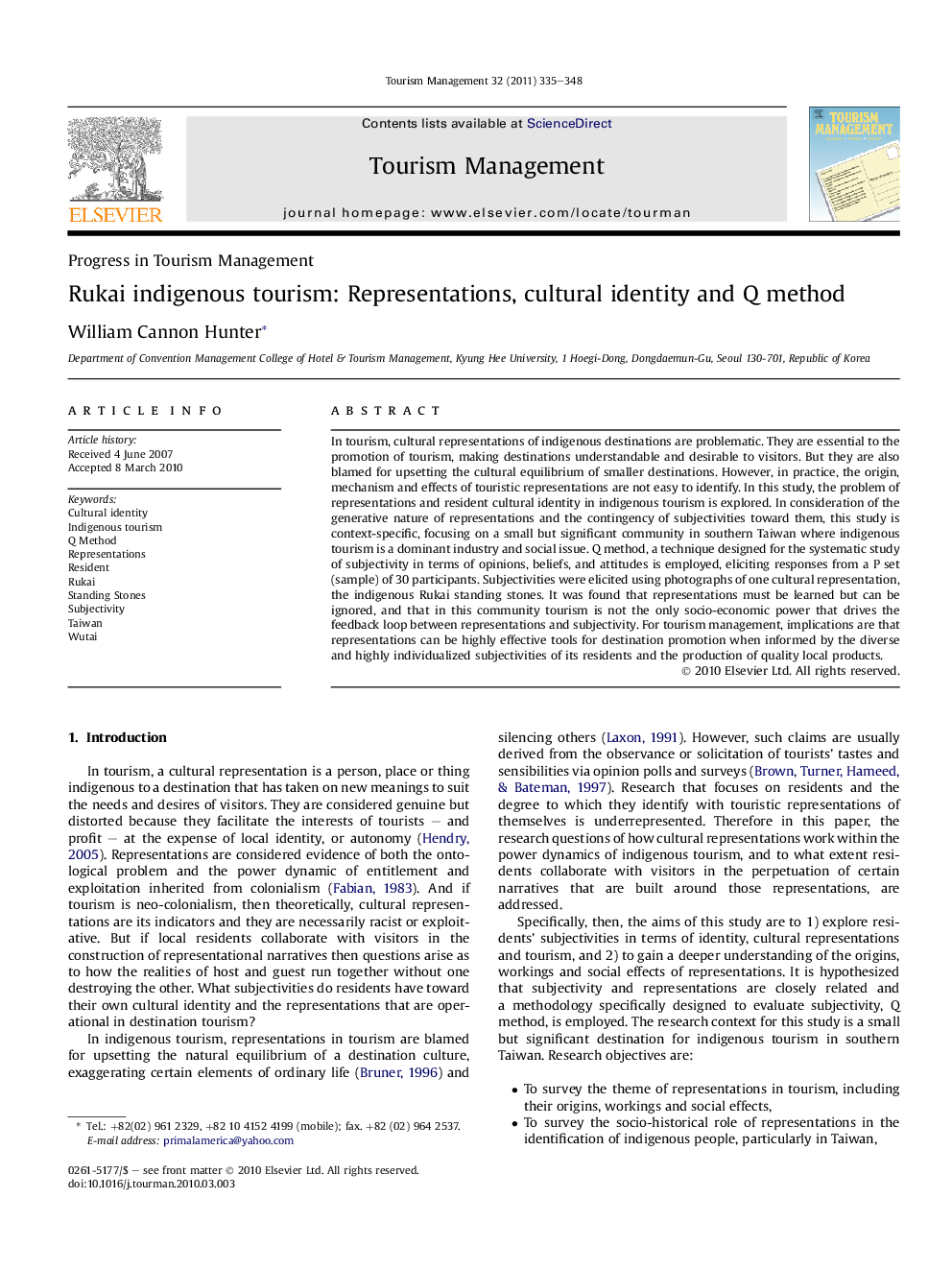| Article ID | Journal | Published Year | Pages | File Type |
|---|---|---|---|---|
| 1012513 | Tourism Management | 2011 | 14 Pages |
Abstract
In tourism, cultural representations of indigenous destinations are problematic. They are essential to the promotion of tourism, making destinations understandable and desirable to visitors. But they are also blamed for upsetting the cultural equilibrium of smaller destinations. However, in practice, the origin, mechanism and effects of touristic representations are not easy to identify. In this study, the problem of representations and resident cultural identity in indigenous tourism is explored. In consideration of the generative nature of representations and the contingency of subjectivities toward them, this study is context-specific, focusing on a small but significant community in southern Taiwan where indigenous tourism is a dominant industry and social issue. Q method, a technique designed for the systematic study of subjectivity in terms of opinions, beliefs, and attitudes is employed, eliciting responses from a P set (sample) of 30 participants. Subjectivities were elicited using photographs of one cultural representation, the indigenous Rukai standing stones. It was found that representations must be learned but can be ignored, and that in this community tourism is not the only socio-economic power that drives the feedback loop between representations and subjectivity. For tourism management, implications are that representations can be highly effective tools for destination promotion when informed by the diverse and highly individualized subjectivities of its residents and the production of quality local products.
Related Topics
Social Sciences and Humanities
Business, Management and Accounting
Strategy and Management
Authors
William Cannon Hunter,
